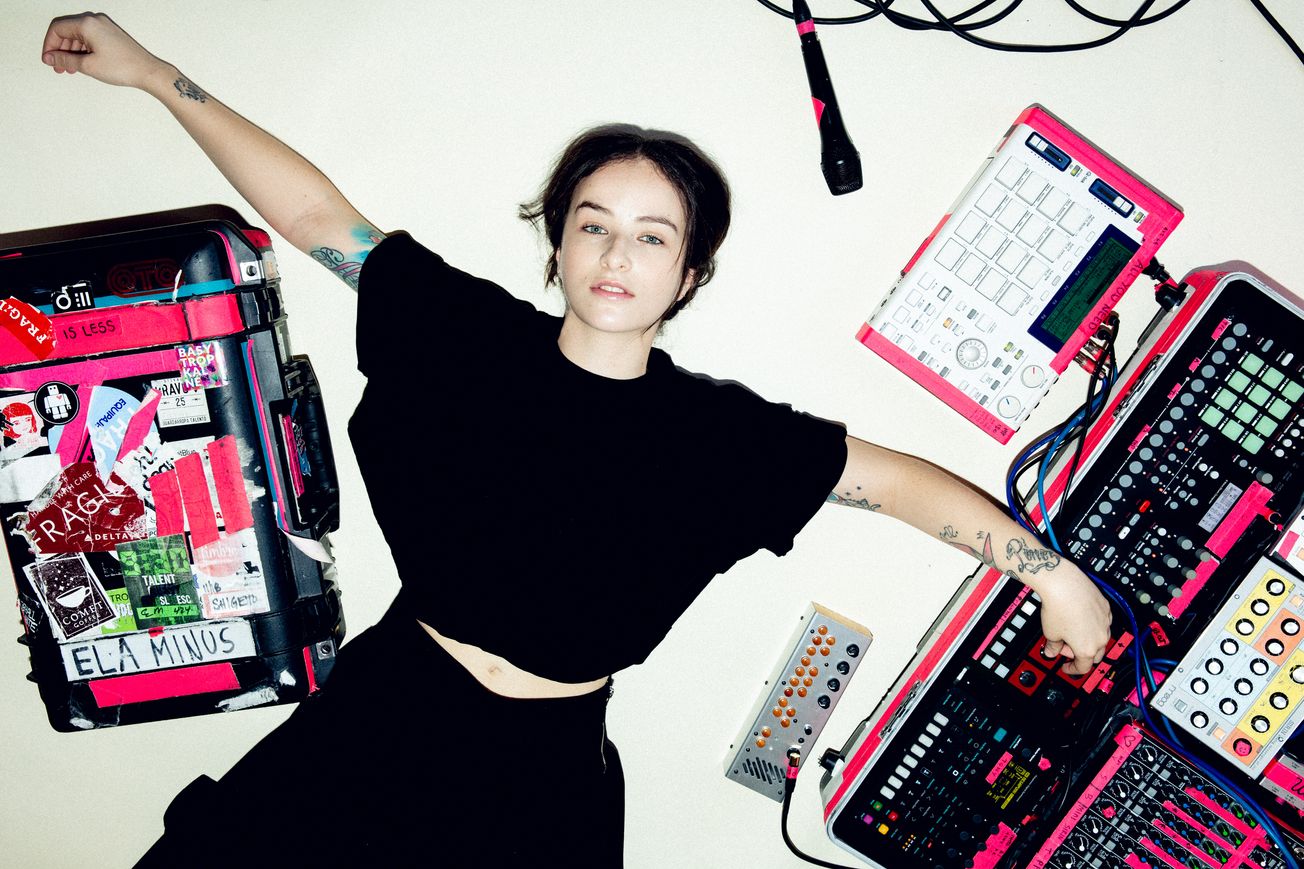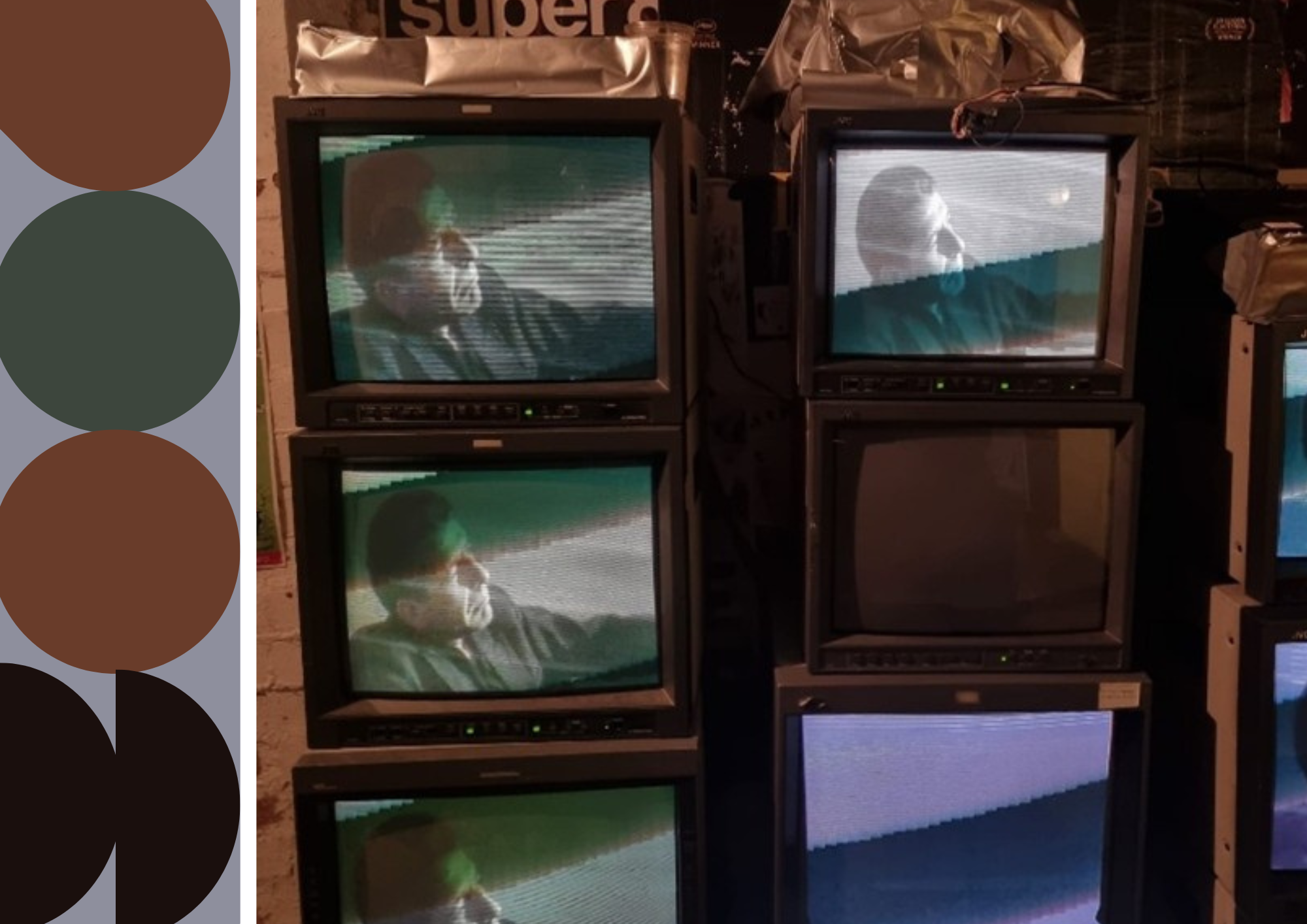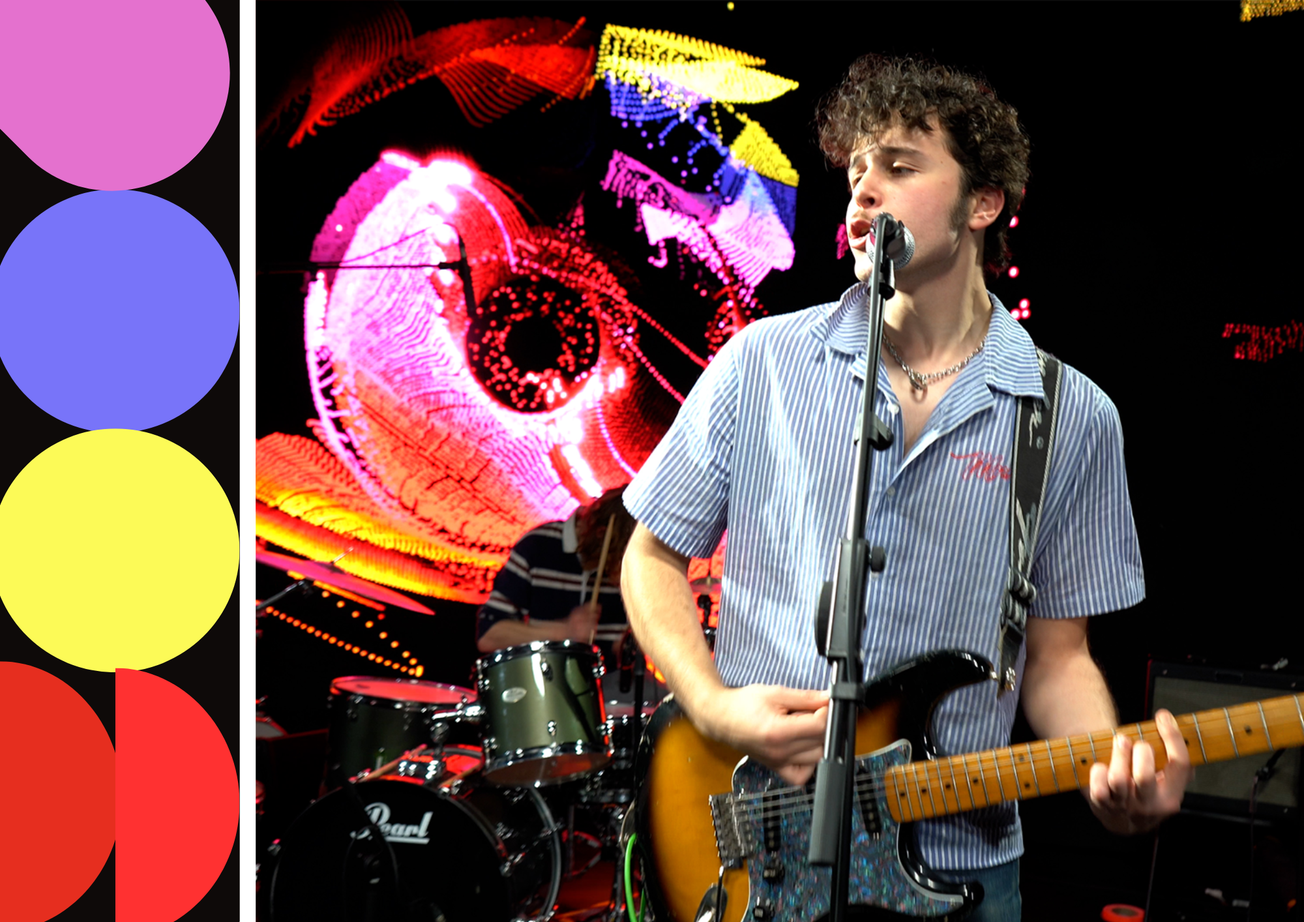By Lucas Arthur, Music Editor
It’s early November. England has just begun its second lockdown and the world awaits the outcome of the US election with bated breath. In Bristol, as in Bogotá, it’s raining outside.
For Ela Minus, music and politics have been an ever-present part of life; ‘I think how political my music is comes from me being Colombian… You go to a party with your parents and everyone around the table is talking about politics… There’s no separation between the personal the political.’
Growing up, she listened to English emo, punk and rock bands – Metallica, Fugazi, Queen - soon forming a punk band, Raton Perez, with friends from primary school – ‘I started very young!’ she laughs. Ela played drums, an instrument she’d rarely seen played by women, before going on to study at the prestigious Berklee College of Music in the US. Escaping from the harsh competition of the college and the now-familiar genres of punk and jazz, she discovered techno and the music of Kraftwerk, Caribou, Mount Kimbie and others – ‘A turning point in my life was when I listened to Four Tet!’ she grins, speaking quickly in accented English. Soon, she’d immersed herself in the Boston club scene and enrolled in a course on music synthesis; By 2015, Ela Minus had started self-releasing her unique brand of punk-edged electronica.
"ela por todas" https://t.co/4GNggwPM0i
— Ela Minus (@ela_minus) November 23, 2020
Live performances, something we both sorely miss, were at the heart of her work. Her live setup peeks in the corner of my laptop screen. It’s a curated set of analogue synths and sequencers, assembled and programmed by hand, adored with pink postit notes and black sharpie – BRIGHT MUSIC… FOR DARK TIMES is sketched across her synthesiser case. Playing live is a mix of pre-programmed sequences and blank sections, she explains. Ideas for her records emerge from the blank, improvised sequences in-between. Sometimes, there’s lyrics too: ‘I’ll just intuitively grab the mic and say or sing something - sometimes it’s just one word, one phrase, one melody.’ Other tracks are instrumental - beat-driven, or melodic ambience, though her latest project tends toward the former. ‘I had a little postit note that said punk club – I wanted to make something I could play in a small, sweaty club…’
Listening to Acts of Rebellion, Ela’s debut album, it’s easy to imagine such a scenario. ‘We can’t seem to find / A reason to stay quiet…’ she snarls on ‘megapunk’, a disco-tech track which embraces the charged, pared-back vocabulary of youthful dissidence. Her message throughout the project is deliberately broad. If anything, it expresses a shared exasperation at the state of the world. ‘I made the record a year and a half ago – It’s interesting how much more political it feels because it’s coming out now.’ Unsurprisingly, US politics take the brunt of her anger. ‘It’s extremely depressing’ she sighs, when I ask how she’s feeling about the ongoing election. ‘I really think none of this matter until January, when they actually have to make the change. From now until then is gonna be a fucking shit show…’
Since its conception, techno has featured mostly male artists. A 2016 study by VICE revealed a significant gender imbalance in electronic music festival line-ups, reflecting the skew in the genre as a whole. I ask how Ela what aspects of this she’s experienced. ‘To be honest, there’s a lot of misogyny in all music - it’s extremely bad, and I’m very vocal and very aware of it’ she says, frankly. ‘They see us essentially as pets, you know, like that’s cute, it’s cute you’re trying to make music.
Indie-folk on the rise: In conversation with Scarlett Loran
In conversation with Beabadoobee
‘It’s stupid and it’s a shame, because women have a very different sensitivity and approach, specifically to electronic music, and we’re really fucking missing out on that.’ Those women who do produce techno are subjected to unique pressures. ‘We’re treated as though we’re so special because we’re doing this… like it’s so rare… it’s made us think that we need to compete against each other because there’s only space for one woman. I think that’s the most fucked up thing. I’ve put my attention into building sisterhood with other women who I think are amazing. We don’t have to compete – men aren’t competing, so why should we?’
The difficulties don’t end there. She elaborates on the shit she has to put up with when playing live; ‘Fucking engineers! … They touch my things and set it up as if I didn’t know how to do it – I’m a nice person, but I’ve learnt I have be super serious and to act like an asshole, essentially, for them to take me seriously - otherwise they completely run over me.’ By now, there’s venom in her tone; ‘They set cues and shit on my mix because they’re afraid I don’t know what I’m doing and assume that I’m not gonna notice – it’s extremely offensive and know it’s only because I’m a woman.’
We discuss other artists in the genre: ‘A lot of times I’ve reached out to other musicians because I’ve wanted to collaborate with them, and they always think you wanna fuck them – “I’m not into you, I just wanna work with your music!”’ I ask if this has happened with artists that I’d recognise – ‘Yeah! Definitely.’ She hesitates. ‘There’s a lot of names and stories that I wanna say out loud, but – and this is another misogynistic thing - I feel like at this point in my career, especially naming bigger names, I don’t want it to become about them right now – they wouldn’t respect my story or my voice. They’d just think “she’s the one who said this about this other person.”... Through the years, you think that these artists are so nice, and that you’d love to work with them – it gets to the point where you realise, Oh! You’re actually an asshole.’
Having lived in Colombia for most of her life, we discuss how her ethnicity has affected her music: ‘Latin America is a very colonised place, like extremely colonised… We consume European and North American culture 100%, so I grew up listening to American English bands, not salsa or native Colombian music - As much as I would’ve loved that, it’s just not what happened.’ Of all genres, the coloniality of European techno is perhaps the most absolute. ‘Latin American producers in general feel underappreciated – These Europeans come here and make their festivals and raves… and then they go home,’ Ela says, frustrated. ‘They don’t take Latin American producers over there.’
It’s not for a lack of Colombian talent, either. She explains how the region has plenty of excellent DJs, but relatively few producers – ‘To have a scene you have to make music, otherwise you’re just emulating scenes from other places’ - and recommends Insurgentes, a record label based in Bogotá which is championing Colombian breakbeat, electro and ambient works. It’s still niche for now, with most of its artists having under 10,000 plays on Spotify, but Ela is excited for what’s to come. ‘It’s starting to blossom! People are actually making music, with an intensity that I don’t see anywhere else - specifically Colombians; our personalities are so intense because we either do it all, or we die - very intense!’
There’s a lot to be excited about. It’s not hard to image Ela as one of the torchbearers of a new era of Latin-American electronica, bridging the gap between continents and their respective cultures – already, on Acts of Rebellion, she alternates between singing in English and Spanish. We chat about the future; since her live shows are cancelled for the foreseeable future, Ela’s taking the time to plan her second project. ‘I’ve blocked out a month, starting December first, to sit down and write – I’ve been thinking about my new direction.’ Last time, it was punk club – ‘I need a north star!... There’s the second album thing, especially when the first one goes well – it’s like, fuck!’ she laughs – ‘I waSnna make it fast because I really don’t wanna get inside my head with it. Now, I’m gonna tap into something that before, I didn’t know I had…’
Featured Image: Teddy Fitzhugh
Do you commit Acts of Rebellion?








